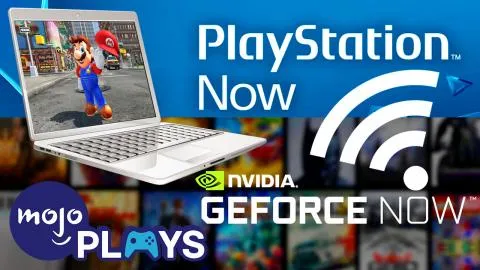Will You Pay for Video Game Streaming?

Mon, Nov 19, 2:58 PM
to s
Will You Pay for a Netflix of Gaming?
There’s no denying that the way we consume media is drastically changing, as on-demand services are taking over the entertainment industry. People have memberships to instant-access services like Netflix, Amazon Prime, Hulu, YouTube Premium, Apple Music, Spotify… you get the idea. With this in mind, it only makes sense that video games might one day make this jump – after all, every video game can now be purchased digitally on any and all consoles, nobody’s needed to go to an actual store to buy a game for years. But could game streaming arrive sooner than we think? And when it inevitably does, will anybody actually be interested?
The core worry about directly streaming a video game is that a streamed game just won’t run properly compared to a game on disc or fully downloaded. Streaming a video game isn’t as easy as a song or a movie, and it needs to run properly and smoothly at all times to be a viable experience – nobody wants their games to start buffering. But the technology does exist and there are already multiple game streaming services, though they haven’t reached the mainstream like Netflix or Spotify have. Services like Shadow, Parsec, and GeForce Now are all currently available services offering gamers the opportunity to play blockbuster titles on their subpar computers for a monthly fee. And the best part is that they actually work; by using the cloud to access the technology of a high-end gaming PC located elsewhere, anybody can play top games without worrying about their technology becoming obsolete.
While any computer with an internet connection and a controller can essentially run all the newest releases if console gaming is your preference the only go-to for console streaming has traditionally been Sony’s PlayStation Now. For a monthly fee, of course, you get access to a library of PlayStation games from the PS4, PS3, and PS2. And it was in September of 2018 that Sony made the next leap in allowing players to download games from PlayStation Now, no longer shackled to having to stream them if they find themselves somewhere with no or limited internet connection. This doesn’t mean that PS Now will be rendered identical to downloading a game from the PS Store, however, because it still requires the subscription package to be able to run your downloaded games.
Microsoft recently joined the streaming race, announcing that their own streaming platform, Project xCloud, which will launch in 2019. Microsoft is going further than Sony, aiming for xCloud to be able to operate on cellular networks as well as standard internet connection; it can apparently run on 5G or even as low as 4G. While it will require Microsoft Azure to operate, xCloud aims to capture the console gaming experience and make it available on every device, including phones and tablets. xCloud might be the service necessary to make lag and delays in the current streaming services a thing of the past.
While we expect gaming innovations from Sony and Microsoft, however, Google are also trying to break into the industry. Announced in October 2018, their Project Stream service is also full of promise: working in conjunction with Ubisoft, Google has successfully been able to stream “Assassin’s Creed Odyssey” – an enormous and technically demanding game – on barebones computers. “Odyssey” on Project Stream is, going by the test footage, indistinguishable from running it on PC or consoles. It runs at a full 1080p and 60 frames per second, and as its test period ends in January 2019, expect further announcements or maybe even a full release of Project Stream later that year. All you need is Google Chrome, and if you’re in the US and meet basic technical requirements you can even sign up to be part of the Project Stream test period.
If you don’t want to stream “Assassin’s Creed Odyssey” on your computer, and you’re in Japan, you might be able to stream it on Nintendo Switch. Ubisoft is doing everything possible to make sure their biggest franchise reaches as many people as possible, which is why “Odyssey” is also available to stream on the Switch. The Switch is unique as a console for its ability to stream games it wouldn’t normally be able to run, with “Resident Evil VII” and “Phantasy Star Online 2” also being available via the cloud – in Japan only. Switch streaming isn’t quite as innovative as Project Stream or xCloud, as it’s much closer to PlayStation Now on the streaming spectrum, but is still a valuable step on the way to full game streaming. Finally, EA is also working on a cloud gaming service which apparently only requires a TV, controller, and internet connection.
However, there’s always the possibility that the battle of the consoles will continue into the streaming age. If only some services are able to acquire the rights to stream certain games, there will be even more exclusive titles floating around; gamers may find themselves swamped with subscriptions to different services so that they can play the best games, much like how Netflix and Amazon Prime have their own exclusive shows. There’s the even worse possibility that publishers themselves, like EA, would have their own services for their own games, foregoing the traditional distributors like Sony or Microsoft completely. Only time will tell if streaming will make gaming cheaper or not, though the potential is there; and even if consoles aren’t rendered obsolete in favor of a resurgence in streamed PC gaming, they may well become cheaper if there’s less of a focus on hardware. Ultimately, game streaming is the next big thing and is going to determine what the next generation of consoles will. For better or worse, a Netflix of gaming really is on the horizon.
